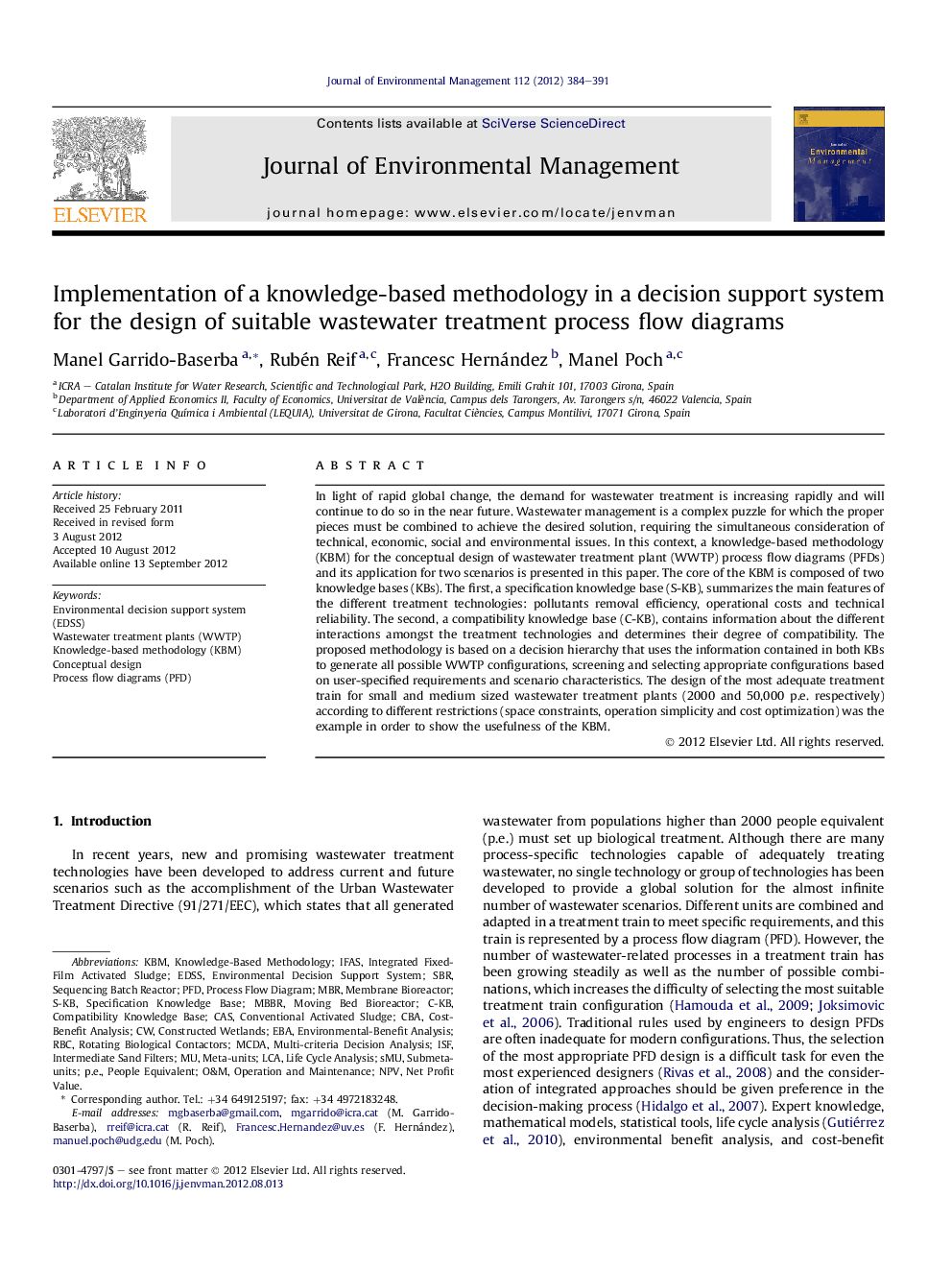| Article ID | Journal | Published Year | Pages | File Type |
|---|---|---|---|---|
| 1056443 | Journal of Environmental Management | 2012 | 8 Pages |
In light of rapid global change, the demand for wastewater treatment is increasing rapidly and will continue to do so in the near future. Wastewater management is a complex puzzle for which the proper pieces must be combined to achieve the desired solution, requiring the simultaneous consideration of technical, economic, social and environmental issues. In this context, a knowledge-based methodology (KBM) for the conceptual design of wastewater treatment plant (WWTP) process flow diagrams (PFDs) and its application for two scenarios is presented in this paper. The core of the KBM is composed of two knowledge bases (KBs). The first, a specification knowledge base (S-KB), summarizes the main features of the different treatment technologies: pollutants removal efficiency, operational costs and technical reliability. The second, a compatibility knowledge base (C-KB), contains information about the different interactions amongst the treatment technologies and determines their degree of compatibility. The proposed methodology is based on a decision hierarchy that uses the information contained in both KBs to generate all possible WWTP configurations, screening and selecting appropriate configurations based on user-specified requirements and scenario characteristics. The design of the most adequate treatment train for small and medium sized wastewater treatment plants (2000 and 50,000 p.e. respectively) according to different restrictions (space constraints, operation simplicity and cost optimization) was the example in order to show the usefulness of the KBM.
Graphical abstractFigure optionsDownload full-size imageDownload as PowerPoint slideHighlights► We present a knowledge-based methodology (KBM) for improving wastewater management. ► It speeds up the decision-making for the selection and design of customized PFDs. ► The KBM integrates quantitative analyses (MCDA) and innovative indicators (LCA). ► This systematic approach facilitates the synthesis and evaluation of WWTP designs.
